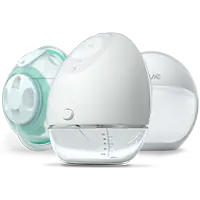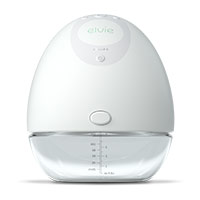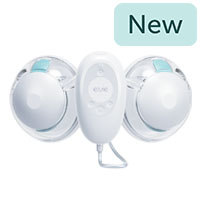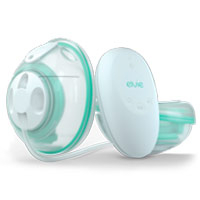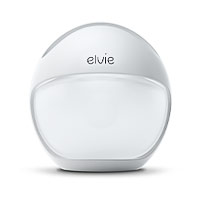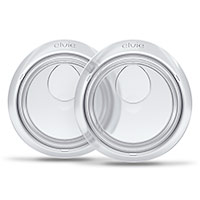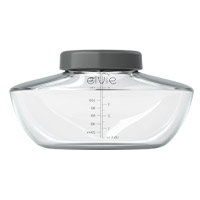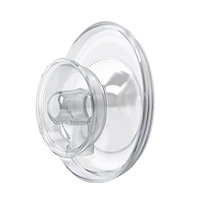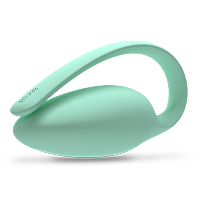Updated on 20/11/23
Over three-quarters of mothers (75.6%) in the UK work – the highest level in the equivalent quarter of the year for the past 2 decades. In the US, the figure is only slightly lower, with 72.9% of mothers with young children participating in the workforce. For many of these working mothers, pumping at work and maintaining their milk supply can be challenging, so knowing their rights and enforcing them with their employers is key.
Here’s a quick guide on everything you need to know about breast pumping at work, whichever side of the pond you’re on.
Your maternity rights
Whenever you return to work, if you are doing so whilst still breastfeeding your baby, it can add some complications to your routine. Expressing at work can be a challenge, especially with traditional, clunky breast pumps, which is why more streamlined pumps like Elvie Pump have become so popular with working mothers.
But it isn’t just outdated breast pumps that can make breastfeeding at work difficult. Depending on where you live, the timeframe in which you return to work and the support you are given by your employer can differ dramatically.
In the UK, a woman is entitled to up to 52 weeks off work. During this time, she is protected by all her normal employment rights, including accruing annual leave and being eligible for promotion. She will be eligible for Statutory Maternity Pay (SMP) for 39 weeks. For the first 6 weeks, she will receive 90% of her average weekly earnings, and then up to £172.48 or 90% of her average weekly earnings – whichever is lower – a week for the next 33 weeks.
While this is the legal minimum, some employers offer longer periods of full pay. One poll suggested that almost two-thirds of UK businesses offer enhanced maternity packages, ranging from six months at full pay, to six weeks at full pay.
Fewer maternity rights for US moms
If British women are still breastfeeding when they return to work, they are protected by rules that support them in doing so. Employers are obliged to provide a clean, warm and private room for expressing (a toilet or bathroom is not deemed acceptable) and a secure clean fridge to store milk expressed within working hours. Breastfeeding mothers are also eligible for a break allowance to allow them to express every few hours and they can also request flexible working hours to accommodate for their breastfeeding schedule.
In the UK it is widely recognised that making life easier for breastfeeding mothers is good for business. Not only does it increase staff loyalty and encourage other women to return to work following childbirth, but research shows that breastfed babies generally have a better immune system and therefore, their parents have future absences due to child illness.
Whilst progress is being made to improve the rights of British mothers, the same cannot be said for the US. The Family and Medical Leave Act of 1993 (FMLA) entitles new mothers to only 12 weeks of unpaid maternity leave, where legally her job must be open for her to return to. Some businesses or states offer more, but this isn't a legal requirement. Some women may not qualify for the full 12 weeks of FMLA leave – if their employer has fewer than 50 staff members, for example, or if they had to take time off for pregnancy complications. Yup, that might be counted against your leave.
Work lactation rooms
Not only is this shockingly different to the UK, but these outdated policies regularly place the US near the top of the worst maternity leave infrastructures in the world, beaten only by Papa New Guinea. The States is in fact the only country in the developed world not to offer paid leave for new mothers. Current president Joe Biden has put forward a plan for the 2024 budget to include improved leave policies, including making those 12 weeks paid, but commentators say Republican lawmakers are unlikely to pass such a proposal.
Some states - California, Rhode Island, New York and New Jersey - do offer financial support during maternity leave, although this oftens require the mother in question to have been paying into a disability insurance programme in the lead-up to the leave.
With many mothers in the States forced to return to work before their baby is ready to be weaned off milk, it isn’t surprising that breast pumping is incredibly popular, with North America making up over half the global breast pump market. Whilst many companies offer lactation rooms, it wasn’t until the advent of Obamacare in 2010 that employers were legally obliged to support breastfeeding mothers in expressing during working hours. Now there is legislation in place which means companies with over 50 employees must provide a clean and safe room for women to express and give female employees adequate break time to express, although technically they don’t have to pay you for those breaks.
Reduce stress, pump better
Whether you are in the UK or the US, breast pumping at work doesn’t need to be a stressful experience. The most important thing is to be as relaxed as possible, so your milk flow is at its optimum. Blocking time out in your diary so you know you won’t be disturbed can help with this and some women also find it useful to look at pictures of their baby or even Facetime them! The scent of your baby will also produce oxytocin, which will help improve your milk flow too – so it might be useful to bring some of your baby’s clothes in to work with you too.
Try not to feel uncomfortable taking your allotted time to pump, and you shouldn’t feel the need to announce to your colleagues where you are going.
Using a simple, hands-free and wireless pump like Elvie Pump doesn’t just make the process of pumping more efficient – incredibly important if you aren't being paid for your break time – but it also frees your hands up so you can utilise your pumping breaks to catch up on admin or eat your lunch (new mothers are multitasking pros). With Elvie Pump you can even pump at your desk as it is ultra-quiet and is worn inside your bra with no wires dangling out. Once you have expressed, you are totally within your rights to store it in the company fridge but remember to clearly label your containers - you don’t want your baby’s dinner ending up in someone’s 3pm latte.
Wherever you are in the world, and however you are feeding your baby, remember to make yourself aware of your rights at work and never be afraid to enforce them.

